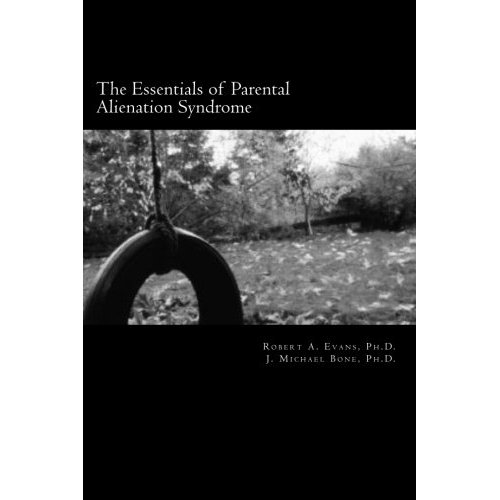This is part two of our review of the symptoms found in Moderate Levels of Parental Alienation (PA), if you missed part one, you can read it here. It is in the Moderate Level of PA where we see The Independent Thinker phenomenon surface.
The child professes that “these are my ideas and nobody told me to say this, nobody put me up to this. Frequently this will be proclaimed even in the absence of being asked “did anyone tell you to say that.”
In the symptom of Reflective Support the child can find nothing good about the targeted parent and only sees the positive side of the alienating parent. The targeted parent has done nothing right relative to the parental conflict or the divorce. In other words, if you ask the child “Do you side with your Dad on any of these things that come up”, they will say “absolutely not”. Whereas in a divorce without Parental Alienation, you will typically see children are able to endorse a position taken by one parent and then endorse the other parent in another issue or set of issues.
The normal response of children in divorce is to try to stay out of the middle. In PA what you see is the child taking on the responsibility to resolve the conflict, by taking a clear side. This becomes clearer in the Moderate stage.
In the Absence of Guilt the child has either minimal or no guilt whatsoever.
If there is any guilt it is at a minimum level and will soon dissolve to none at all. The guilt is in terms of putting the other parent down, the suffering that parent may be experiencing because of the lack of their relationship with the child or the pain experienced by the extended family members on the targeted parent’s side. If the targeted parent expresses love and caring for that child and missing them there is no real warm response or empathy.
 The guilt, remorse, empathy doesn’t just suddenly go away like flipping a switch. It is something that normally erodes over time. What is observable, however is the child taking a different position than previously; a change or shift in their orientation. The child not be moved by the other parent’s suffering, which is typically not present in divorce situations without PA. This is one of the symptoms that when it is observable, you are more deeply into the alienation process.
The guilt, remorse, empathy doesn’t just suddenly go away like flipping a switch. It is something that normally erodes over time. What is observable, however is the child taking a different position than previously; a change or shift in their orientation. The child not be moved by the other parent’s suffering, which is typically not present in divorce situations without PA. This is one of the symptoms that when it is observable, you are more deeply into the alienation process.
In Borrowed Scenarios the same vocabulary is heard from different members of the family; the same arguments coming from the child as are heard from the alienating parent. One clue that maybe observed is the vocabulary might be beyond the developmental level of the child. At times young children are heard using words like harassing as in “he harasses us”. When asked what the word means, they simply don’t know. Frequently heard are the pairing of words, “he divorced us; he left us”. This is similar to a kind of affiliation and a squaring off of sides in the dispute and is reflective of a kind of enmeshed relationship that happens between a child and the alienating parent. Frequently heard will be the inappropriate use of the first person plural when they ought to be using the first person singular, we instead of I. When a four or five-year old child says “I don’t feel safe”, that’s not a concept a child this age typically articulates.
The Spread of Animosity for the Extended Family and Friends of the alienated parent starts to surface at this level. The child is being programmed to dislike the targeted parent’s parents, the grandparents, and clearly, if there is a stepparent involved, they are very easy targets. In the Mild cases this is minimally present, but now at this stage it is clearly present. This, like the other symptoms, is represented in the change or shift from the pre-divorce/separation experience of the child and what is presently going on.
The most tell-tale sign is the enmeshed relationship or close bonding with the alienating parent and the child, they are virtually joined at the hip. A therapist will learn that the child or children are sleeping with the alienating parent and give multiple excuses, commonly blaming the targeted parent, as to why they are doing so. At the Moderate stage, even though there are problems with visitation and at times behavior, there still is some sort of a bond between the child and the targeted parent. This may sound strange since with the child demonstrating a lack of ambivalence but sometimes this bond is observable. It is evidenced by an emotional response in the presence of that targeted parent that is inconsistent with all the things that they have said about them. It may be subtle, but there is still some sense of connectedness present. It is not easy to alienate a child from a parent; it takes a lot of work for the bond to be completely disconnected.
At this stage what we call “the rear view mirror phenomenon” can be observed. This is where as the house of the alienating parent disappears from the rear view mirror, then so does some of the symptomatology of the Parental Alienation. This is when the resistance of the visitation starts to wear off. After a few blocks, the child and targeted parent are back to a relatively normal relationship.


